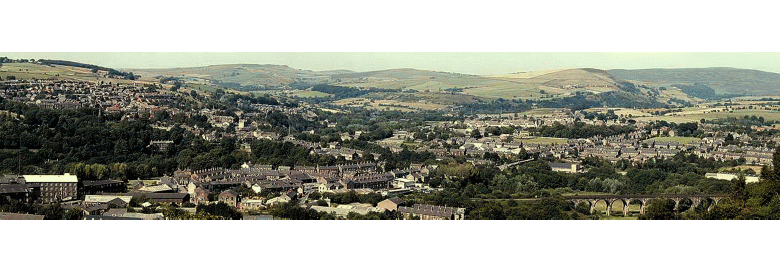| | | | |  | |  | | | |
Mr. John Mullany
With regard to my opponents I say nothing. No doubt they are respectable gentlemen, but they will not be the slightest use in the next House of Commons, not a little bit. Men like me are wanted, and not swells who don't understand business."
Mr. John Mullany was very confident that he did. He was an ironmonger and general dealer whose store at the corner of Torr Top Road and Market Street enlivened the political life of New Mills in the eighteen-sixties. A rugged Irishman, blunt and vigorous in speech, he decided to offer himself as an Independent candidate for the Northern Division of the County of Derby in the second general election of 1868. Because two million new voters would poll throughout the country, it had been stigmatised as the "leap in the dark'' election, and it was to be the last one at which votes had to be made in public, not in ballot. Gladstone was also for the first time to general his Liberal regiments against Disraeli's Conservatives.
Mr. Mullany thought these stirring times needed him. To gauge the amount of possible support in the constituency for his proposed candidature he displayed a remarkable poster which is not only a local legend but has also some historical significance since Mullany was probably one of the first small shopkeepers even to contemplate the possibility of a Parliamentary career.
In bright blue lettering he proclaims his sturdy independence by advertising his naive views on the popular political issues of the moment: the management of railways, land tenure in Ireland, the relation of the Irish Church to the State, services pay, taxes, and trade unions.
About each Mr. Mullany has a decisive opinion. Reading his vigorous, amusing sentences we seem to overhear the long animated discussions into which his customers teased him in the Victorian ironmonger's shop, strategically placed at the most important road junction in the village, and recently made more important by the opening of the railway station.
Railways were in the forefront of local news. The previous year, after the damage from the Bugsworth landslide had been repaired, the line to Miller's Dale had been opened to passenger traffic, and the London-Manchester expresses now passed over the new bridge and through the new tunnel at the bottom of Torr Top Road. Direct rail connection with Derby, London and Manchester was a great fillip to local industry and to local pride. It was not fortuitous that Mr. Mullany heard Westminster calling.
Talk with the Irish navvies working in the neighbourhood is possibly reflected in his opinions on the burning issue of railways, a topic probably often fanned to incandescence in the New Mills shop. "Having carried on business for the last forty years as an ironmonger and general merchant, I shall be fully capable,'' cajoles the willing candidate, "of entering into all the details of railway business, as I understand that somebody is going to propose that, as the companies are so dreadfully mismanaged, the fares and the carriage of goods so high, and the dividends so very small, that the government shall take them into their own hands."
"Now, Gentlemen, in such a case what an invaluable man I would be; I would take care that the country was not robbed of a shilling and that it get the worth of its money. I would take care there should be no jobbery, and if it was needed,'' writes 'your very obedient humble servant’; "I would take the whole management of the business myself, which I am perfectly competent to do."
The election had been forced on the question of the separation of the Church of Ireland from the State. Mullany is engagingly Irish in giving his opinion. "With regard to [this] I shall not say a word as I don't like to interfere . . . but I must say one thing," -and he proceeds to say it with his usual pungency.
Mr. Mullany's views on taxation are elementary and human.
"I hate taxes. And so does everybody. I would abolish no end of them at once, and the others I would do the same gradually. As to taxes on everything the working man wears, eats and drinks, these I would do away with instantly... In fact, gentlemen, before I was in the House of Commons long, I would hope to abolish all taxes.'' Income tax was then five pence in the pound.
He courted the Services vote. Soldiers and sailors should be "well paid and fed, for the money they get they spend in the country, and that is good for trade."
To the novel ideas of Trade Unions and Teetotalism his attitude is uncompromising. "If the Unions did not behave themselves, I would transport them at once," and "I'll never vote with the teetotallers.''
Mr. Mullany's Dickensian personality must have added to the gaiety of this north Derbyshire village a century ago, and Westminster would probably have been the merrier, though possibly not the wiser, for his presence. He did not, however, arrive there. His good friends persuaded him not to proceed to the hustings, as the reactions to his exploratory poster were not as enthusiastic for his Independent views as he was himself.
Three candidates only presented themselves. The new Prime Minister, Mr. Gladstone, was not to receive the advice of Mr. Mullany.
The result was:
Lord G. H. Cavendish (Liberal) 2,904
A. P. Arkwright, Esq. (Conservative) 2,696
B. W. Jackson, Esq. (Liberal) 2,636
 |
| | ![]() |  | |  | | | | | |
|
|








